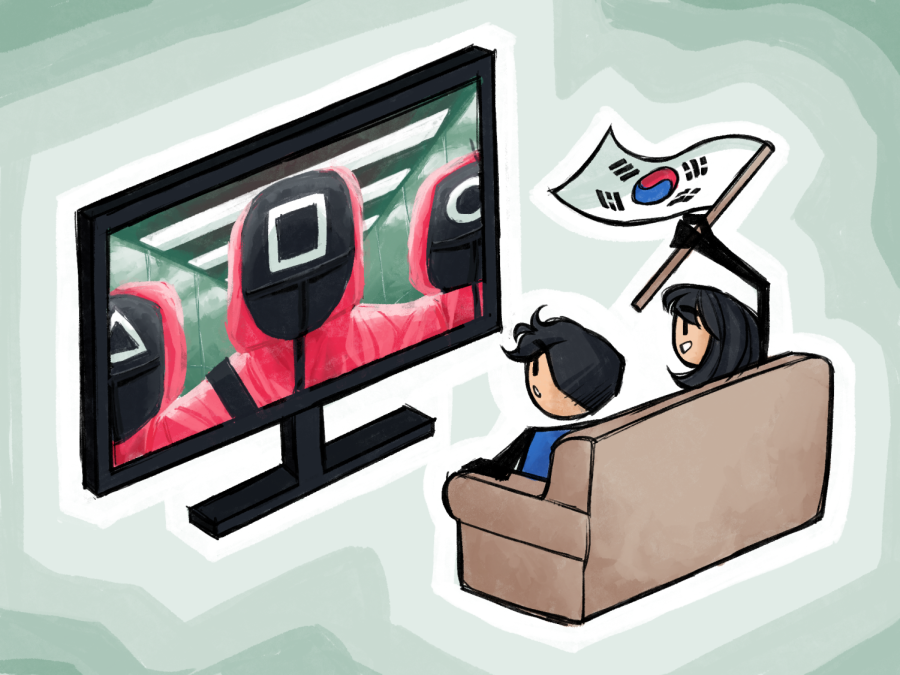Students find value in proper film representation beyond stereotypes
Shows from other countries and cultures like “squid Game” have helped students feel a sense of belonging.
In recent years, the popularity of shows and movies from places around the world, such as anime and K-dramas, has been at an all time high. According to CNET, since its release, people have watched more than 2.1 billion hours of “Squid Game,” a popular show from South Korea. As more people continue to take interest in this kind of media, other countries are represented on a global scale. Many students at SCHS appreciate being represented in these shows and feel that proper representation is important.
Freshman Ysabella Vizconde enjoys watching films and television shows from other countries. They appreciate seeing themself represented in popular media.
“I am Filipino, so I like to watch Filipino movies and shows,” Vizconde said. “I can relate to them sometimes because it is in my family’s language.”
Senior Andree Shae Deiparine also watches shows and movies from around the world and feels deeper connections to shows from the Philippines than those from America.
“I just relate to it more because of the culture behind the shows,” Deiparine said. “I was born in the Philippines, so having these shows that show familiarity in the scenery and the names gives me a better connection and understanding of the shows as opposed to American shows.”
Vizconde believes representation in TV and films can help to educate others on different cultures.
“It’s important because people can also learn about other cultures too,” Vizconde said. “Representation is very important because other people learn about the culture of other people, so they learn how to respect the other people’s culture as well.”
While Vizconde appreciates being represented in films from different cultures, she pointed out that it is important for the media to represent cultures beyond stereotypes and dive deeper than surface level.
“Sometimes they always do the basic stuff – like they will only talk about lumpia – because that is a Filipino food,” Vizconde said. “They don’t really talk about the other Filipino cultures besides just taking some of it. It’s just the basic food that all the people know about.”
As SCHS students see themselves in popular media, they feel more seen and are inspired to dream bigger.
“The world is composed of a bunch of people from different cultures, from different backgrounds, from different cultures and ethnicities,” Deiparine said. “If you are just going to narrow it down to this group of people who are represented in the media, then you are going to have kids growing up not seeing themselves through that media and how they are going to be having a hard time finding themselves.”


